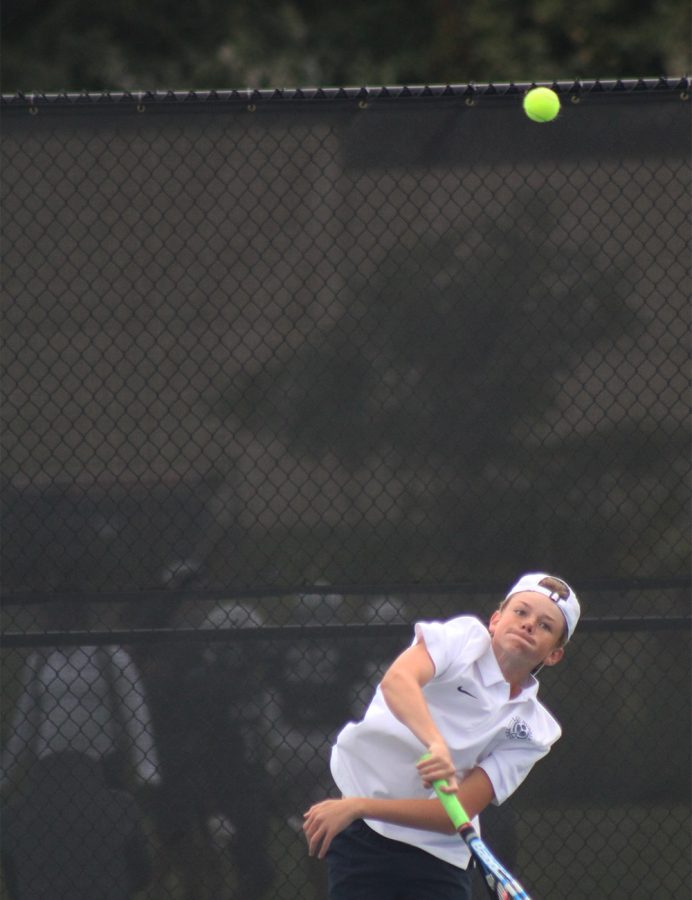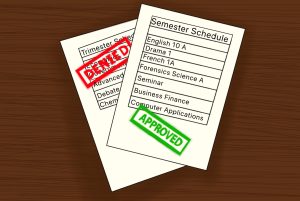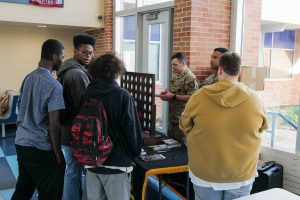School sports help athletes get higher grades
Credit: Gracie Goschke
Sophomore Edwin Ciokajlo returns a tennis ball to his opponent. Ciokajlo is a three sport athlete who experiences the struggles of keeping his grades up while in season.
March 14, 2023
Being a student athlete is tough. Wake up around 6:00 a.m., go to school and wait for the first bell at 7:33. Work hard in school until the 2:20 p.m. bell, go to practice or a game, go home and do homework. Then repeat this process for almost one third of a school year.
On top of the schedule, to play a sport in high school, you need to maintain a 2.0 GPA or higher to stay eligible. This sets standards for kids to be on track to graduate and if they can’t maintain this GPA then they will not be able to play sports. This is the reality for many Loy Norrix athletes and not all athletes can maintain these grades for the whole season due to lack of discipline of themselves or their teammates.
“When some people on the team have low grades, the coach punishes the whole team with sprints and the people that aren’t eligible can’t play,” said sophomore basketball and tennis player Edwin Ciokajlo.
Now, sometimes when students find themselves on the threshold of being ineligible and are about to find themselves unable to play in a game, they find ways to bump their grades back up.
“When I find myself slipping a little on grades, I usually will talk to my teacher and we figure something out,” said sophomore Sam Schnell.
This motivation contributes to a phenomenon of high achieving student athletes. University of Kansas conducted a study that found “High school athletes were ten percent more likely to graduate than their peers who had never participated in sports. Athletes were also shown to have higher grade point averages than non-athletes.”
School sports also exercise the brain and teach athletes a ton of things like goal setting and time management. Athletes stay more in touch in school knowing they have something to work for like being eligible to compete.
Schnell said, “Just knowing that I have something to work for like a game, it always keeps me motivated throughout the school day.”
According to CrystalandComp, “Vigorous exercise improves blood flow to the brain, thereby improving alertness and intellectual functions, such as thinking and learning, decision-making and processing information. Compared to sedentary students, physically active students are 20 percent more likely to earn top marks in math, science and English.”
“I usually just work harder and take more time outside of school to do work,” said Ciokajlo.













Gail Engle • Sep 5, 2024 at 5:25 pm
As a former HS teacher I know all Brody said to be fact. Sports are a great motivator and the reward of the good grades is a bonus when applying to colleges or even stating on a job application. My athletes were responsible, interested in other students, supportive and respectful.